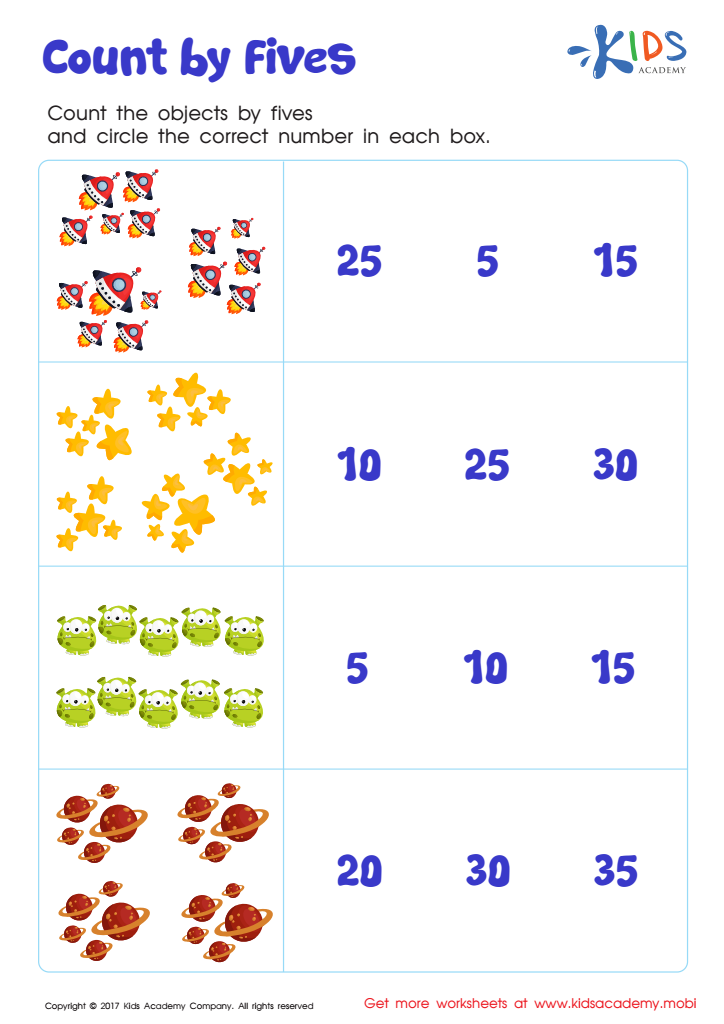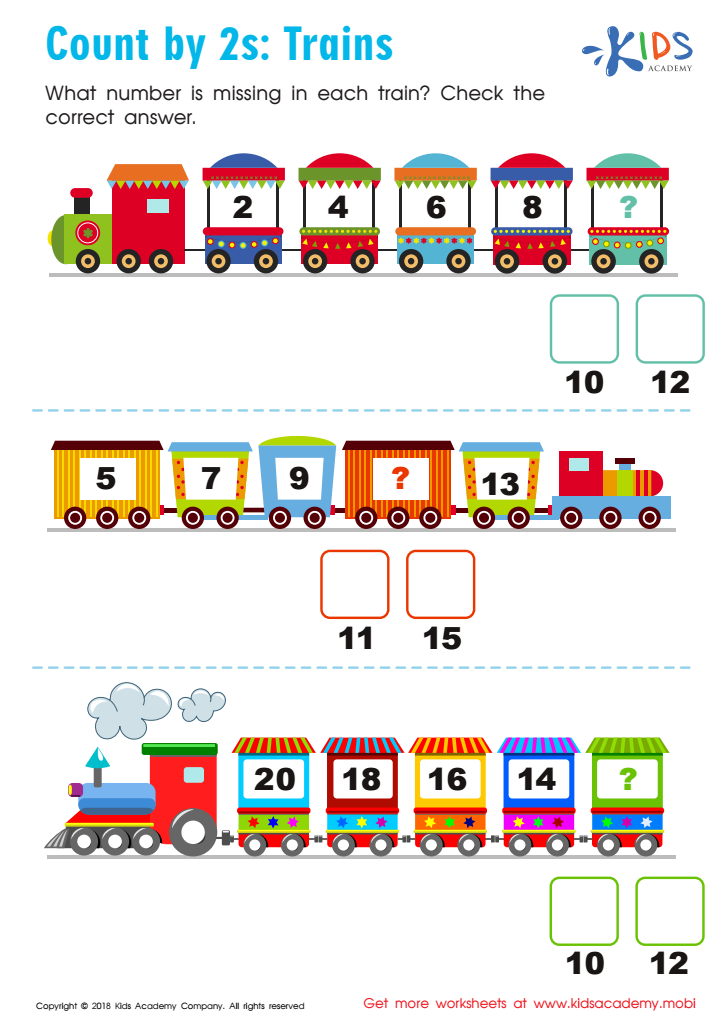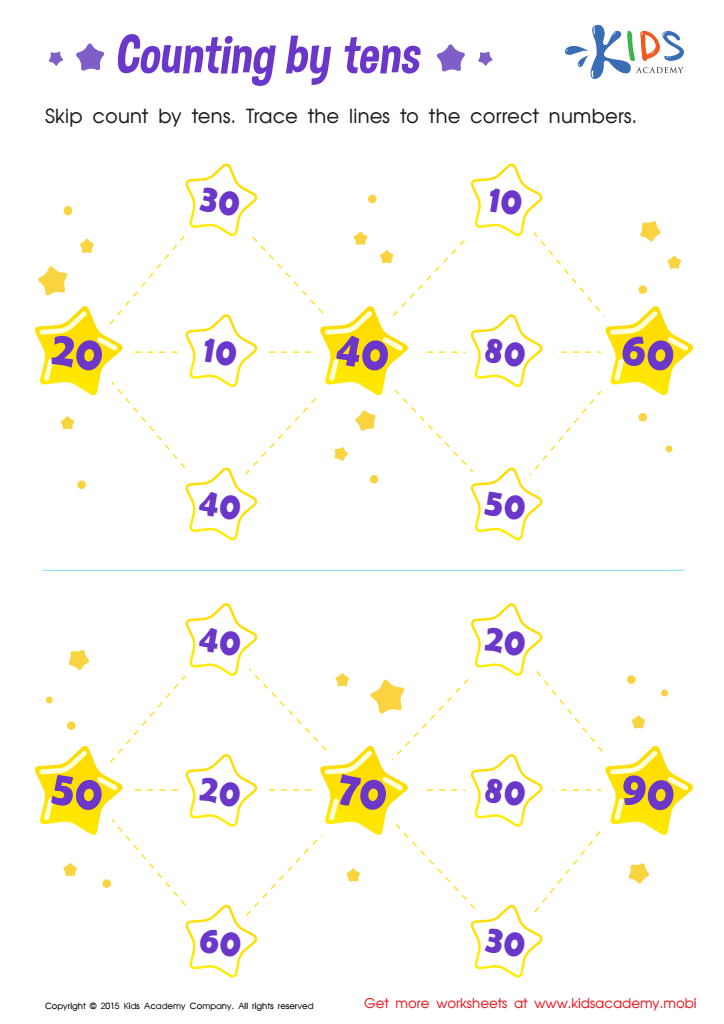Number Recognition Skip Counting Worksheets for Ages 6-8
3 filtered results
-
From - To
Enhance your child’s number literacy with our engaging “Number Recognition Skip Counting Worksheets for Ages 6-8.” Designed specifically for young learners, these printable worksheets focus on improving number recognition and skip counting skills. Each fun and interactive sheet aims to build a strong foundation in math, making learning enjoyable and effective. Perfect for both classroom and home use, these activities support the development of crucial early math skills, including pattern recognition, sequencing, and counting by 2s, 5s, and 10s. Help your child gain confidence in math with our expertly crafted resources that turn learning into an adventure!


Skip Counting by 5s: Space Math Printable


Count by 2's: Trains Worksheet


Learn Dozens: Counting by Tens Printable
Number Recognition and Skip Counting are foundational skills crucial for children's early mathematical development. For children aged 6-8, fostering these abilities provides a vital framework for more complex math concepts, essential for their academic progress.
Number Recognition helps children identify and understand numbers, facilitating more effortless navigation between different math tasks. When children recognize numbers effortlessly, it diminishes the cognitive load, allowing them to focus on problem-solving strategies and mathematical reasoning instead of simply identifying numbers. This familiarity also bridges the transition to more advanced topics like addition, subtraction, and place value understanding.
Skip Counting, a method of counting forward by a number other than one, usually 2's, 5's, or 10's, equally benefits early mathematics learning. It promotes fluency in numerical patterns and lays the groundwork for multiplication and division concepts that children will encounter in subsequent grades. Additionally, skip counting enhances mental math capabilities and supports the understanding of even and odd numbers.
Incorporating these skills into early education nurtures child's confidence, enhances their math enjoyment, and equips them with problem-solving strategies crucial for success across other subjects. Consequently, both parents and teachers who prioritize Number Recognition and Skip Counting in their practices set the stage for a child’s continued academic achievements and positive math experiences.

 Assign to My Students
Assign to My Students



%20(1).jpg)












